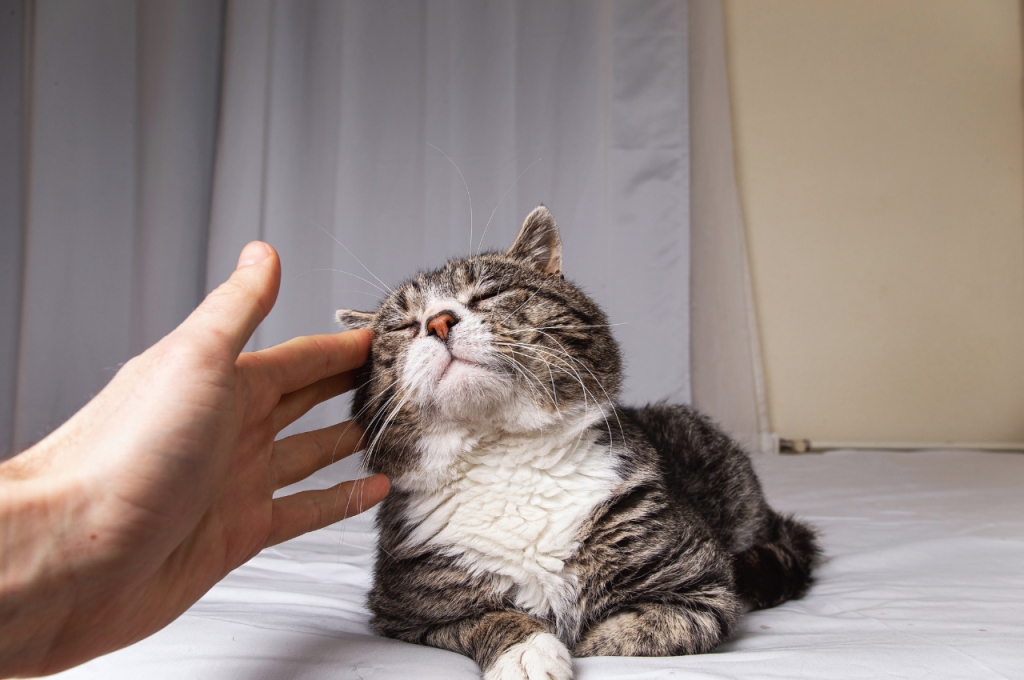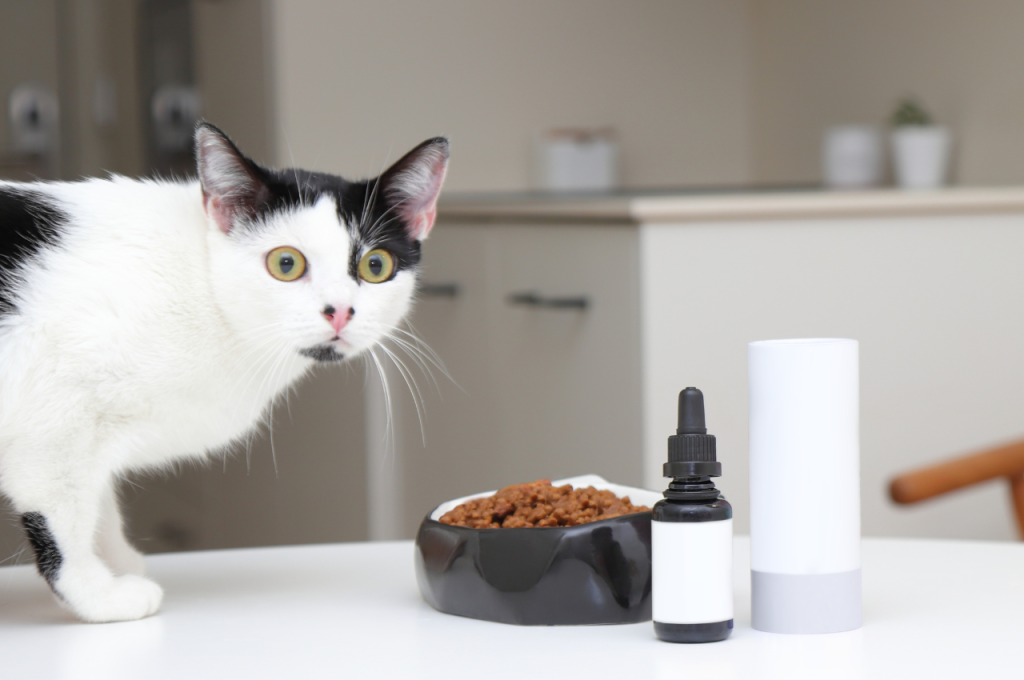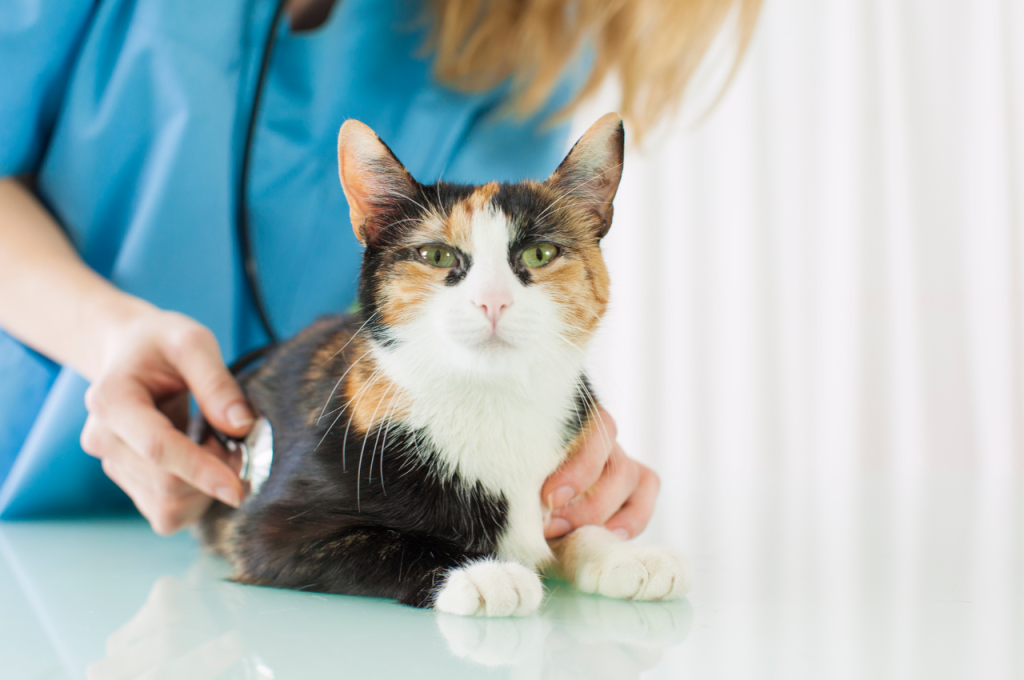For the best cat health treatment at home, focus on a balanced diet and regular exercise. Additionally, ensure your cat has access to fresh water and a clean litter box.
Regular grooming and veterinary check-ups are also essential for maintaining your cat’s health and well-being. By creating a safe and stimulating environment, you can help prevent common health issues and ensure your cat stays healthy and happy. Remember, a proactive approach to your cat’s health is key to promoting a long and fulfilling life for your feline companion.
Introduction To Home Cat Care
When it comes to ensuring the health and well-being of your beloved feline companion, prompt attention and care are of utmost importance. With the right knowledge and resources, you can provide effective cat health treatment at home. This blog post will guide you through the essentials of home cat care, highlighting the importance of prompt attention and the benefits of using home remedies.

Importance Of Prompt Attention
Timely response to your cat’s health issues is crucial for their overall well-being. By addressing any concerns promptly, you can prevent the escalation of minor issues into more serious conditions. Prompt attention allows for early diagnosis and treatment, increasing the chances of successful recovery. Regular observation and quick action can ensure your cat’s comfort and minimize their suffering.
Benefits Of Home Remedies
Home remedies can be a natural and effective way to treat various common cat health problems. They offer several benefits, including:
- Cost-effectiveness: Home remedies are often more affordable compared to conventional treatments, saving you money without compromising your cat’s health.
- Convenience: Many home remedies can be easily prepared using ingredients readily available at home, making it convenient to administer treatment.
- Reduced stress: Cats are sensitive creatures who may become stressed by visits to the vet. Home remedies provide a less invasive and more comfortable option for treatment, reducing stress levels for both you and your cat.
- Natural approach: Home remedies often use natural ingredients, which can be gentler on your cat’s system and minimize the risk of adverse side effects.
- Supplemental care: Home remedies can complement professional veterinary care, providing additional support to enhance your cat’s healing process.
By understanding the importance of prompt attention and the benefits of using home remedies, you can ensure the best possible care for your feline friend right in the comfort of your own home.
Recognizing Common Cat Ailments
Signs Of Digestive Issues
Cats can often experience digestive issues, which can be indicated by vomiting, diarrhea, or loss of appetite. Lethargy and dehydration are also common signs of digestive problems. It’s important to monitor your cat’s litter box habits and overall behavior for any irregularities.
Symptoms Of Skin Disorders
Itching, excessive grooming, and hair loss are signs of potential skin disorders in cats. Scabs, redness, or irritation on the skin should also be examined carefully. Keep an eye out for any changes in your cat’s skin condition and behavior, as these could be indicative of an underlying issue.
Nutritional Support For Feline Health
Feline health is of utmost importance to cat owners, and providing proper nutrition is one of the key factors in maintaining their well-being. Nutritional support plays a crucial role in promoting a cat’s overall health and preventing various diseases. In this article, we will explore the essentials of a balanced diet for cats and the supplements that can help boost their immunity.
Balanced Diet Essentials
A balanced diet is essential for cats to thrive and stay healthy. It should consist of high-quality proteins, healthy fats, carbohydrates, vitamins, and minerals. Here are the key components to include in your cat’s diet:
- Protein: Cats are obligate carnivores, which means they require a diet rich in animal-based protein. Include lean meats such as chicken, turkey, or fish to meet their protein needs.
- Fats: Healthy fats are a great source of energy for cats. Include omega-3 fatty acids found in fish oil or flaxseed oil to support their skin, coat, and overall health.
- Carbohydrates: Although cats do not require carbohydrates in large amounts, a small portion of easily digestible carbohydrates such as rice or sweet potatoes can provide them with energy.
- Vitamins and Minerals: Cats need a variety of vitamins and minerals to support their immune system, maintain healthy bones, and promote proper organ function. Ensure their diet includes essential vitamins like A, D, E, and minerals like calcium and phosphorus.
Supplements For Boosting Immunity
In addition to a balanced diet, certain supplements can help boost your cat’s immune system and promote optimal health. Here are some supplements that can benefit your feline friend:

- Probiotics: Probiotics support a healthy gut and aid in digestion. They can help prevent digestive issues and improve immune function. Look for specific probiotic supplements designed for cats.
- Omega-3 Fatty Acids: Omega-3 fatty acids have anti-inflammatory properties and can support a cat’s immune system. They also promote healthy skin and a shiny coat. Consider adding fish oil supplements formulated for cats to their diet.
- Antioxidants: Antioxidants help combat free radicals and reduce oxidative stress. They can strengthen your cat’s immune system and protect against age-related diseases. Look for supplements that contain vitamins C, E, and selenium.
- Joint Supplements: Cats, especially older ones, can benefit from joint supplements that contain glucosamine and chondroitin. These supplements can help maintain healthy joints and prevent arthritis.
Remember to consult with your veterinarian before introducing any new supplements to your cat’s diet. They can provide guidance on the appropriate dosage and ensure the supplements are safe for your cat’s specific needs. Providing proper nutritional support through a balanced diet and supplements can significantly contribute to your cat’s overall health and longevity.
Managing Feline Stress And Anxiety
Creating A Calm Environment
Cats thrive in a calm and secure environment. Providing a quiet space where your feline friend can retreat when feeling stressed is essential. This could be a cozy nook with soft bedding and toys, away from loud noises and high-traffic areas.
Recommended Therapies And Activities
Engaging in interactive play sessions with your cat using toys such as feather wands or laser pointers can help alleviate stress and anxiety. Creating a regular routine for feeding, playtime, and relaxation can also provide a sense of security for your feline companion.
Skin And Coat Care At Home
Achieving the best cat health treatment at home involves maintaining skin and coat care. Regular grooming, a balanced diet, and supplements can help keep your cat’s skin and coat healthy. By addressing any issues early, you can ensure your feline friend stays happy and healthy.
Skin and coat care are crucial aspects of maintaining your cat’s overall health. Regular grooming techniques and natural solutions for irritations can help keep your feline friend healthy and happy.
Regular Grooming Techniques
Regularly brushing your cat’s coat helps prevent matting and reduces shedding. Use a cat-specific brush to avoid skin irritation.
Natural Solutions For Irritations
Apple cider vinegar diluted in water can soothe itchy skin. Coconut oil can help with dryness and promote a shiny coat.
Preventive Measures For Cat Health
Keep your feline friend healthy with simple home remedies. Regular grooming, a balanced diet, and plenty of water are essential. Be mindful of their surroundings and keep toxic substances out of reach to ensure a safe environment for your cat.
Vaccination And Regular Check-ups
Vaccination is crucial to prevent diseases in cats. Regular check-ups help detect issues early.
Parasite Control Strategies
Implement parasite control strategies to protect your cat from fleas, ticks, and worms.
When To Seek Professional Veterinary Help
Seeking professional veterinary help is crucial when it comes to ensuring the best cat health treatment at home. With their expertise, they can diagnose and provide appropriate care for your feline companion, ensuring their well-being and speedy recovery.

Identifying Emergency Situations
- In a cat’s health, identifying emergency situations is crucial.
- Common signs include difficulty breathing, seizures, or severe injuries.
Benefits Of Regular Vet Visits
- Regular vet visits help prevent health issues and ensure early detection.
- Cats receive vaccinations, parasite prevention, and overall health assessments.
- If your cat shows signs of distress or sudden behavior changes, consult a veterinarian.
- It’s essential to seek professional veterinary help for proper diagnosis and treatment.
Frequently Asked Questions
What Are Some Common Health Issues In Cats?
Cats can suffer from various health issues, including dental problems, obesity, urinary tract infections, and allergies. In addition, they may experience flea infestations, ear mites, and hairballs. Regular check-ups with a veterinarian and a healthy diet can help prevent many of these issues.
How Can I Tell If My Cat Is Sick?
Signs of illness in cats may include decreased appetite, lethargy, vomiting, diarrhea, and changes in behavior. Other symptoms to look for include coughing, sneezing, or discharge from the eyes or nose. If you notice any of these signs, it’s important to consult with a veterinarian.
What Are Some Home Remedies For Cat Health Problems?
While some minor health issues in cats can be treated at home, it’s important to consult with a veterinarian before attempting any home remedies. Some natural treatments that may help with issues such as hairballs, fleas, and minor cuts and scrapes include coconut oil, apple cider vinegar, and aloe vera.
How Often Should I Take My Cat To The Vet?
Most cats should visit a veterinarian at least once a year for a routine check-up and vaccinations. However, older cats or those with pre-existing conditions may require more frequent visits. It’s important to discuss your cat’s individual needs with a veterinarian to determine the best schedule for check-ups.
Conclusion
Overall, taking care of your cat’s health is crucial for their overall well-being. With these easy and effective home treatments, you can ensure your cat stays healthy and happy. From grooming to nutrition, providing your cat with the best care possible is essential.
Remember to always consult with a veterinarian if you have any concerns about your cat’s health. By following these tips, your cat will be on their way to a long and healthy life by your side.
